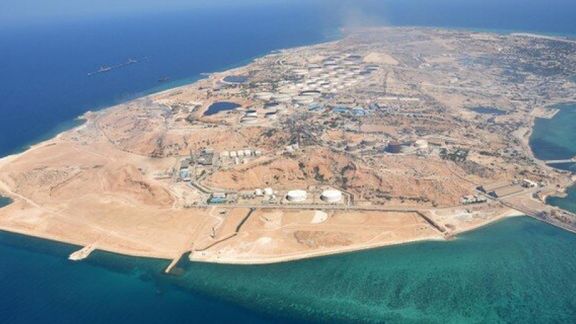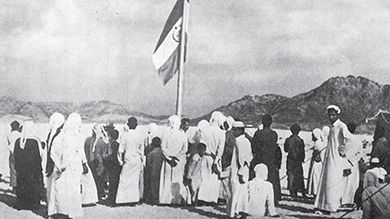Iran Asserts Islands Sovereignty, Arabs Sing In ‘Garden Alleys’

Iran has reasserted its claim to sovereignty over three Persian Gulf islands after Gulf Cooperation Council (GCC) foreign ministers met this week in Riyadh.

Iran has reasserted its claim to sovereignty over three Persian Gulf islands after Gulf Cooperation Council (GCC) foreign ministers met this week in Riyadh.
Foreign ministry spokesman Nasser Kanaani said Friday that Abu Musa, Greater Tunbs, and Lesser Tunbs were all Iranian, rejecting the GCC view that the islands belong to the United Arab Emirates (UAE). Kanaani said the GCC claim was “opening the security equations of the region to foreigners.”
The three islands have been in dispute since the British withdrew their armed forces in 1971 and Mohammad Reza Shah sent the Iranian navy to secure all three. Iranian forces remain on the islands, with only Abu Musa having much of a civilian population at several thousand.
Kanaani stressed Tehran’s wish for improved relations with the GGC member states, a central commitment of President Ebrahim Raisi since taking office in August 2021. Relations between Iran and the six GCC member-states have thawed with August’s return to Tehran of Kuwaiti and Emirati ambassadors, and with cautious Saudi-Iran dialogue since last year mediated by Iraq.
Raw nerve
But the statement closing the GGC foreign ministers’ meeting, their 153rd, in making a routine reference to three islands, has touched a raw nerve in Tehran amid wider tensions. Amongst the GCC, Qatar and Oman would welcome the return of the 2015 nuclear deal, the JCPOA (Joint Comprehensive Plan of Action), and have both mediated between Tehran and Washington.

But even after President Joe Biden’s July visit to Jeddah, Saudi Arabia remains skeptical. The Saudis loudly opposed the JCPOA when it was agreed in 2015, and Crown Prince Mohammad bin Salam closely identified with President Donald Trump, who withdrew the US from the JCPOA in 2018.
In a piece Friday, Fars News republished a 2006 article written by Hossein Shariatmadari, long-serving editor of the flagship principlist daily Kayhan, establishing the “historical and legal reasons for Iran’s ownership.”
Maps from ancient Greece
With barely concealed contempt for the six nations of the GCC, none of which he pointed out had existed for as long as 100 years, Shariatmadari referred to maps and documents going back to ancient Greece, arguing that geographers and officials had considered the islands part of Iran. Shariatmadari gave particular mention to the work of the British, including an 1881 Royal Navy map with “the three islands and the soil of Iran” in the same color.
Shariatmadari headlined his 2006 article Avaz Kuche Baghi, ‘songs of the garden alleys,’ referring to old stories of passers-by singing to keep up their spirits as night fell. Similarly, the editor suggested, the Arab monarchs of the Persian Gulf ‘sang’ to dampen their fears of the “earthquake that the Islamic Revolution has thrown on their medieval and illegal governments” whose people lacked “the least involvement” in “the rule of one family.”
Shariatmadari also argued that Bahrain, which became an independent state 1971, had been “separated” from Iran in an “illegal conflict.” After the British took over Bahrain in the late nineteenth century there was agitation in the Iranian parliament by the 1950s to declare it an Iranian province, but Shah Mohammad Reza abandoned Iran’s claim in 1970.